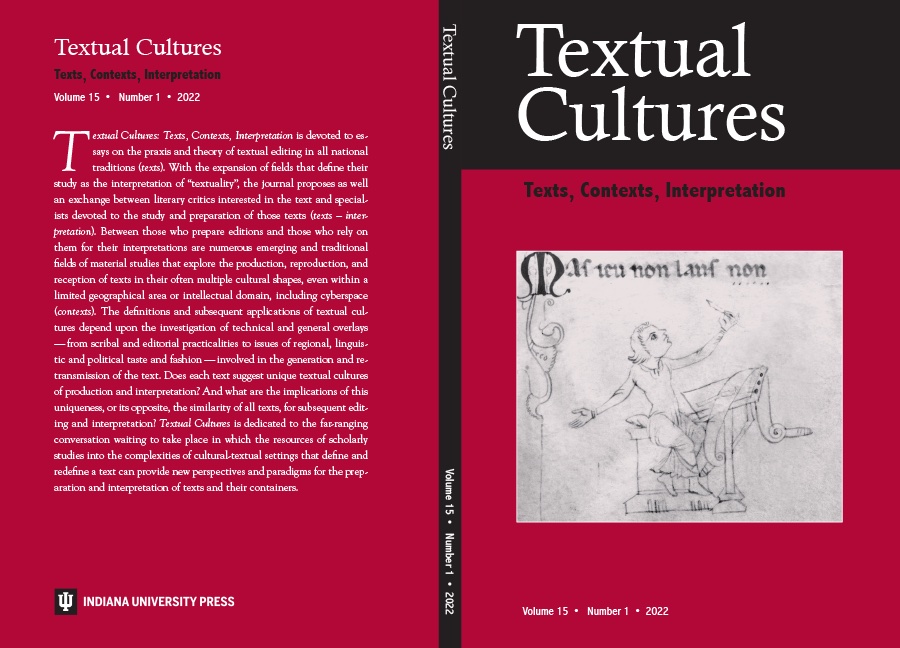Digital Editing and “Experience [. . .] looked upon as a kind of text” A Provocation in Three Exhibitions
Main Article Content
Abstract
This provocation argues for a form of digital creative-critical editing to serve as a pragmatic complement to the dominant “depth” models of traditional scholarly editing. What results is a pan-relational praxis of editing that focuses on connecting edited texts to new contexts and literary experiences with new tools, instead of using a depth model to offer the correct description, representation, or data model of those texts. Creative textual criticism could then be considered ongoing and incomplete, partaking of an iterative process of close reading and distant analysis, and redescriptions of textual criticism that are embedded in the creative process and other aesthetic experiences. These ideas are demonstrated in three brief exhibitions of Thomas Hardy, Herman Melville, and the abolitionist Mary Anne Rawson, all of whom are loosely connected to Arthur Schopenhauer, who once posited in Counsels and Maxims that “Experience of the world may be looked upon as a kind of text, to which reflection and knowledge form the commentary”. Such “commentary” inspires a new mode of pan-relational “reflection” and networked discourse which can only be implemented with digital technologies. What digital editing can do, then, is to give space to competing and alternative discourses and processes of the same text and to connect that text to other aesthetic contexts.
Downloads
Article Details
Authors who publish with this journal agree to the following terms:
- Authors retain copyright and grant the journal right of first publication with the work simultaneously licensed under a Creative Commons Attribution License (see:http://creativecommons.org/licenses/by/3.0/us/) that allows others to share the work with an acknowledgment of the work's authorship and initial publication in this journal.
- Authors warrant that their submission is their own original work, and that they have the right to grant the rights contained in this license. Authors also warrant that their submission does not, to the best of your knowledge, infringe upon anyone's copyright. If the submission contains material for which an author does not hold the copyright, authors warrant that they have obtained the unrestricted permission of the copyright owner to grant Indiana University the rights required by this license, and that such third-party owned material is clearly identified and acknowledged within the text or content of their submission.
- Authors are able to enter into separate, additional contractual arrangements for the non-exclusive distribution of the journal's published version of the work (e.g., post it to an institutional repository or publish it in a book), with an acknowledgment of its initial publication in this journal.
